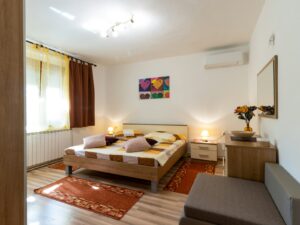WPC vinyl flooring, short for Wood Plastic Composite, has gained popularity in recent years as a versatile and durable flooring option for residential and commercial spaces alike. In this article, we will delve into the various advantages and disadvantages of WPC vinyl flooring to help you make an informed decision for your next flooring project.
Pros of WPC Vinyl Flooring
1. Durability: One of the standout features of WPC vinyl flooring is its exceptional durability. Engineered with a combination of wood fiber and PVC, WPC flooring is highly resistant to scratches and dents, making it an ideal choice for high-traffic areas in the home or office. Unlike traditional vinyl flooring, WPC vinyl is built to withstand the rigors of everyday use, ensuring longevity and low maintenance requirements.
2. Waterproof: WPC vinyl flooring is inherently waterproof, making it suitable for installation in moisture-prone areas such as bathrooms, kitchens, and basements. Unlike hardwood or laminate flooring, WPC vinyl will not warp or swell when exposed to water, offering peace of mind and long-term reliability in areas susceptible to spills and moisture.
3. Comfort: Beyond its durability and waterproof properties, WPC vinyl flooring also offers superior comfort underfoot. The added resilience of the wood plastic composite core provides a softer feel compared to traditional vinyl or laminate flooring, making it a comfortable option for areas where you spend a lot of time standing or walking. Additionally, WPC vinyl flooring offers better sound absorption, reducing noise transmission and creating a quieter indoor environment.
4. Easy Installation: WPC vinyl flooring features a convenient click-lock installation system, allowing for quick and hassle-free installation without the need for messy adhesives or specialized tools. This makes WPC vinyl an excellent choice for DIY enthusiasts looking to tackle their flooring project without professional assistance. With its user-friendly installation process, WPC vinyl flooring offers both time and cost savings compared to traditional flooring options.
5. Stylish Designs: From rustic hardwoods to sleek stone finishes, WPC vinyl flooring offers a wide range of stylish designs to suit any aesthetic preference or interior decor scheme. With advanced printing technology, WPC vinyl can accurately mimic the look and texture of natural materials, providing the beauty of hardwood or stone without the maintenance requirements or price tag. Whether you prefer classic oak planks or contemporary tile patterns, WPC vinyl flooring offers endless design possibilities for your space.
Cons of WPC Vinyl Flooring
1. Cost: While WPC vinyl flooring offers numerous benefits, it typically comes with a higher price tag compared to traditional vinyl or laminate flooring options. The initial cost of WPC vinyl may deter some budget-conscious consumers, particularly for larger flooring projects. Additionally, installation costs may vary depending on the complexity of the project, further impacting the overall expense.
2. Environmental Impact: Like many synthetic flooring materials, WPC vinyl has environmental implications that may give pause to eco-conscious consumers. Made from non-biodegradable materials such as PVC and plasticizers, WPC vinyl flooring contributes to landfill waste and may release harmful chemicals into the environment over time. While efforts have been made to improve the sustainability of WPC flooring products, environmental concerns remain a consideration for conscientious consumers.
3. Susceptibility to Temperature Changes: While WPC vinyl flooring is highly resilient, it is not immune to the effects of temperature fluctuations. In extreme heat or cold, WPC vinyl may expand or contract, potentially leading to gaps or buckling in the flooring surface. Therefore, it may not be suitable for areas with inconsistent climate control or extreme temperature variations.
4. Not Suitable for Uneven Subfloors: WPC vinyl flooring requires a smooth and level subfloor for proper installation. Uneven or irregular subfloors may compromise the integrity of the flooring system and result in an uneven or unstable surface. Therefore, homeowners with older homes or uneven subfloors may need to address subflooring issues before installing WPC vinyl flooring.
Conclusion
In conclusion, WPC vinyl flooring offers a compelling combination of durability, waterproofing, comfort, and style, making it a popular choice for modern homes and businesses. However, it’s essential to weigh the pros and cons carefully to determine if WPC vinyl flooring is the right choice for your specific needs and preferences. By considering factors such as cost, environmental impact, temperature sensitivity, and subfloor conditions, you can make an informed decision that ensures long-lasting satisfaction with your flooring investment.
Read More What to put under vinyl flooring? AC4 Vs AC5 Laminate Flooring How to remove vinyl flooring from concrete, wood and plywood subfloor Can you use vinyl for gym flooring




